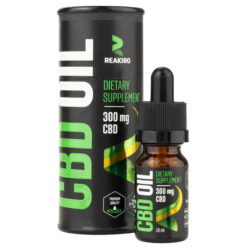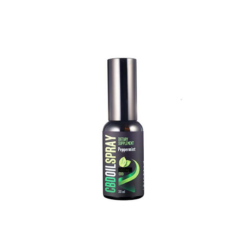Cannabis oil, often referred to as “Liquid Gold,” has gained significant attention and popularity in recent years. This article will provide a comprehensive understanding of cannabis oil, exploring its origins, extraction methods, types, benefits, legal status, risks, and its promising future.
What Is Cannabis Oil?
Cannabis oil, derived from the Cannabis plant, is a concentrated liquid extract containing various compounds found in the plant. The two primary compounds are THC (Tetrahydrocannabinol) and CBD (Cannabidiol), each with distinct properties and applications.
Cannabis oil has a rich history dating back centuries. It has been used for medicinal, therapeutic, and even recreational purposes. The extraction methods and understanding of its chemical composition have evolved over time.
-
Reakiro – Broad Spectrum CBD Oil
R349.00 – R499.00 -
Reakiro – Hemp CBD Capsules
R349.00 – R499.00 -
Reakiro – Broad Spectrum CBD Oil Mouth Spray – Peppermint
R499.00 – R799.00 -
Reakiro – Broad Spectrum CBD Oil Mouth Spray – Blood Orange
R499.00 – R799.00
Why Is Cannabis Oil Called “Liquid Gold”?
The nickname “Liquid Gold” is attributed to the perceived value of cannabis oil due to its numerous potential health benefits. The name also reflects its highly concentrated form, making it a precious substance in the world of natural remedies.
Cannabis oil’s appeal lies in its versatility, as it can be used for various health and wellness purposes. Its potential to alleviate numerous ailments and improve overall well-being contributes to its growing popularity.
In recent years, there has been a surge in interest and demand for cannabis oil products, driven by increasing awareness of its potential benefits. The next sections will delve deeper into the world of cannabis oil to understand its composition and extraction methods.
Understanding Cannabis
Cannabis is a plant that has been used for both recreational and medicinal purposes for thousands of years. It contains various compounds, including cannabinoids, which are responsible for its effects.
Different Varieties Of Cannabis Plants
Cannabis plants come in several varieties, each with its own unique characteristics and applications. Let’s delve deeper into these varieties.
| INDICA | SATIVA | HYBRID |
| Short and bushy appearance | Taller and more slender in appearance | Combines traits of both Indica and Sativa plants |
| Typically higher in THC content | Contains higher levels of THC | Effects can vary widely depending on the specific hybrid strain |
| Effects are relaxing, sedating, and often used for stress relief | Energising and uplifting effects, enhancing creativity and focus | Provides a balanced experience, suitable for various situations |
| Well-suited for evening use or relaxation | Preferred for daytime use to boost productivity | Many hybrids are created to target specific effects or medical conditions |
The Chemical Components Of Cannabis
Understanding the key chemical components of cannabis is essential for grasping its effects and potential benefits:
THC (Tetrahydrocannabinol)
- Main psychoactive compound responsible for the “high.”
- Interacts with the brain’s cannabinoid receptors.
- Potential medicinal uses include pain relief and nausea reduction.
CBD (Cannabidiol)
- Non-psychoactive compound.
- Offers various potential health benefits without the intoxicating effects.
- Widely used for anxiety, inflammation, and epilepsy management.
Other Cannabinoids
- Cannabis contains over 100 different cannabinoids.
- Some notable ones include CBG (Cannabigerol) and CBN (Cannabinol).
- Each cannabinoid has unique properties and potential therapeutic uses.
How Is Cannabis Oil Extracted?
The process of extracting cannabis oil is critical in determining its quality and safety. Different methods are used for extraction.
Solvent-based Extraction
- Involves using solvents like ethanol or butane to extract cannabinoids.
- Effective but requires careful solvent removal to ensure safety.
- Common for producing products like shatter and wax.
CO2 Extraction
- Utilises carbon dioxide under high pressure and low temperatures.
- Considered a safe and clean method, preserving the plant’s integrity.
- Ideal for producing high-quality oils used in tinctures and vape cartridges.
Olive Oil Extraction
- A simpler, safer method using olive oil to extract cannabinoids.
- Often employed for homemade cannabis oil.
- Provides a mild and user-friendly option.
Importance of Proper Extraction Methods
Choosing the right extraction method is crucial to maintain the safety and quality of cannabis oil products:
- Proper extraction minimises the risk of harmful contaminants.
- Results in a pure and potent final product.
- Prevents the presence of pesticides, heavy metals, or residual solvents.
- Ensures consumer safety and product purity.
Types Of Cannabis Oil
Cannabis oil comes in several forms, each catering to different preferences and needs:
Full-Spectrum Cannabis Oil
Full-spectrum oils preserve all naturally occurring compounds in the plant. This includes cannabinoids, terpenes, and flavonoids.
Benefits And Uses
- Entourage Effect: Full-spectrum oils offer a synergistic effect where compounds work together to enhance therapeutic benefits.
- Pain Management: The broad spectrum of compounds can effectively address chronic pain and inflammation.
- Neurological Conditions: Full-spectrum oils have shown promise in managing epilepsy and other neurological disorders.
Broad-Spectrum Cannabis Oil
Broad-spectrum oils contain all the compounds except THC. Users can experience the benefits of multiple cannabinoids without the psychoactive effects of THC.
Applications In Wellness
- Anxiety and Stress: Broad-spectrum oils are suitable for anxiety relief without inducing a “high.”
- Pain Management: They offer pain relief options for those who want to avoid THC.
CBD Isolate
CBD isolate consists solely of isolated CBD molecules, with no other compounds present. It is typically found in crystalline form.
Medicinal Uses
- Precise Dosing: CBD isolate allows users to control their CBD intake with precision.
- Drug Testing: It’s a preferred option for individuals concerned about THC appearing on drug tests.
- Seizure Disorders: CBD isolate has demonstrated effectiveness in some forms of epilepsy management.
Benefits And Applications Of Cannabis Oil
Cannabis oil boasts a wide range of applications and potential benefits, making it a versatile choice for various health and wellness needs.
Managing Chronic Pain
- Particularly, full-spectrum oils have shown efficacy in alleviating chronic pain conditions, including arthritis and fibromyalgia.
- The entourage effect enhances pain relief by combining multiple cannabinoids.
Anxiety And Stress Relief
- CBD-rich oils, such as broad-spectrum and CBD isolate, have gained popularity for their potential to reduce anxiety and stress levels.
- They do so without the psychoactive effects associated with THC, offering a calmer state of mind.
Epilepsy And Seizure Management
- CBD-based medications like Epidiolex have been approved for treating severe forms of epilepsy.
- The anticonvulsant properties of CBD make it a promising option for seizure control.
Cancer Treatment Support
- Cannabis oil is being researched for its potential to mitigate cancer-related symptoms, including nausea, pain, and loss of appetite, often associated with chemotherapy.
Skin Care And Beauty Products
- Topical cannabis oil products have gained popularity in the skincare and beauty industry.
- Due to their anti-inflammatory properties, they are used to address various skin conditions, from acne to eczema.
Potential for Neurological Disorders
- Ongoing research explores the potential benefits of cannabis oil for neurodegenerative diseases like Alzheimer’s and Parkinson’s.
- Early findings suggest it may help manage symptoms and slow disease progression.
Legal Status And Regulation Of Cannabis Oil
Cannabis oil’s legal status varies widely across countries and states, with some allowing it for medical use and others for recreational use. Some countries have strict regulations, while others have more lenient laws regarding cannabis and its derivatives.
Regulatory Bodies
Regulatory agencies, like the FDA, play a crucial role in monitoring the quality and safety of cannabis oil products. The FDA oversees the approval and regulation of cannabis-based medications and products in the United States. Regulatory bodies establish quality standards, conduct inspections, and enforce safety measures to protect consumers.
Medical Vs. Recreational Use
The distinction between medical and recreational cannabis use is critical and varies depending on geographical locations.
Different Legal Approaches
Some regions have legalised medical cannabis use while maintaining strict regulations on recreational use. In contrast, others have fully legalised both medical and recreational cannabis, allowing broader access.
Medical Cannabis
Medical cannabis typically requires a prescription or recommendation from a qualified healthcare professional. These strains are used to treat specific medical conditions, with a focus on symptom management.
Recreational Cannabis
Recreational cannabis is often available to adults without the need for medical certification. This is primarily used for enjoyment and relaxation, rather than addressing medical ailments.
Risks And Side Effects
The use of cannabis comes with some potential risks and side-effects, just like any other medication. It is important to find what works for you and consult a medical professional regarding your goals and desired outcomes.
Short-Term Side Effects
While cannabis oil is generally well-tolerated, some users may experience mild short-term side effects, including:
- Nausea: Common when consuming high-THC products, but usually temporary and manageable.
- Dizziness: Occurs, especially in new users, due to the psychoactive effects of THC.
- Dry Mouth (Cottonmouth): A well-known side effect, alleviated by staying hydrated.
Long-Term Risks
While cannabis oil is generally considered safe, there are potential long-term risks associated with heavy and prolonged use:
- Dependency and Addiction: In some individuals, especially with high-THC products, long-term use can lead to dependency or addiction.
- Cognitive Impairment: Extended use, particularly during adolescence, may impact cognitive functions, including memory and decision-making.
Drug Interactions
Cannabis oil may interact with certain medications, potentially affecting their effectiveness or safety:
- Potential Conflicts with Medications: It’s essential to consult with a healthcare professional when using cannabis oil alongside other medications, as it can influence how drugs are metabolised in the body.
Ongoing Research And Discoveries
The field of cannabis research is continually evolving, uncovering new insights and potential applications.
Ongoing studies explore the complex interactions between cannabinoids and the endocannabinoid system. These findings contribute to a more comprehensive understanding of cannabis and its therapeutic potential.
Evolving Legislation
Changing attitudes and scientific discoveries are driving shifts in cannabis legislation. As public opinion evolves and stigma diminishes, cannabis laws are gradually becoming more permissive. This may lead to further legalisation and acceptance on a global scale.
Market Growth And Trends
The cannabis oil market is experiencing significant growth and diversification. Entrepreneurs and investors are capitalising on the expanding market, creating opportunities in cultivation, extraction, and product development. This growth extends to ancillary industries, such as packaging and technology.
In conclusion, cannabis oil offers a diverse range of possibilities, from therapeutic applications to a growing market for wellness products. While its potential benefits are extensive, understanding the nuances of its varieties, extraction methods, legal status, and potential risks is essential for informed and responsible use. As research progresses and legislation evolves, the world of cannabis oil is poised for continued growth and transformation, offering new solutions and opportunities for individuals seeking natural remedies and enhanced well-being.










